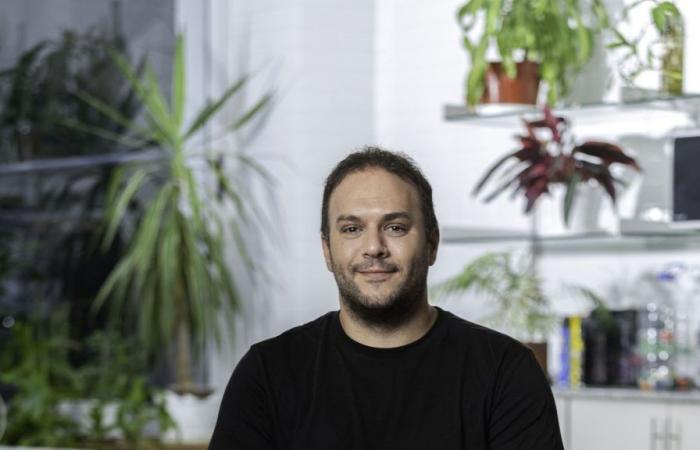Julian Colombo: The first months of this year were very marked by the change of government. Many radical changes in monetary policy were expected, but in the end there was not much change. In what is strictly monetary regulation, everything remains quite the same, the country tax continues, exchange controls continue, the different exchange rates continue.
The truth is that this first semester that is ending now was very marked by the permanence of the crypto dollar, the so-called stablecoins, in the minds of Argentines. It is one of the most popular crypto currencies for Argentines since they maintain a stable parity with the dollar.
Q: The Argentine seems to be going for the most conservative option in crypto matters. Did you see any other behavior that caught your attention?
JC: What we saw was an important change in the volume traded, since many more people appeared who are trusting in the crypto dollar, which is added daily and also remains. Thus, we had a very large growth in volume, not only from individuals but also from corporate clients (companies).
Another thing we saw, on a more global level and that also impacted Argentina, was the rebirth of the crypto fever due to the improvement in the price of Bitcoin. The top cryptocurrency had reached $70,000 at the end of 2021 and then dropped to $15,000 at one point. And last year it ended up at about 40 thousand dollars. Now it has recovered the 70 thousand of the historical maximum. And from this recovery in the price of Bitcoin, people’s interest in other cryptocurrencies that are not stablecoins (crypto dollar) began to resurface a little.
Q: What other options appear attractive?
JC: What we are seeing from our platform is an enthusiasm again for users to buy cryptos like Bitcoin, Ether, to start getting back into the world of web 3, to start considering other crypto projects that are floating around.
But anyway, in the case of Argentina this still does not reach the magnitude of the crypto dollar, which for us is our main product.
Q: Do you think that if the new Government lifted exchange restrictions, enthusiasm for cryptocurrencies would have been more intense?
JC: We always work with various scenarios. On the one hand, we see people who started buying crypto dollars that if they had had the option to buy it in their bank without restrictions, perhaps they would have returned to their traditional financial institutions. But there are a lot of people who like the crypto world more, which allows you to dollarize in a simple way, with the push of two buttons, without having to go to the MEP where the quote closes after 48 hours, or 24 hours, and there are other restrictions.
The great adhesion of people to the crypto dollar in the last year had to do with the fact that they were discovering the advantages it has, beyond regulatory issues. And I believe that if access to the currency is opened, as well as if a controlled system or system similar to the current one is maintained, the enthusiasm and use of stablecoins will continue to grow.
Furthermore, one of the main added values is immediate liquidity. In two clicks you can buy crypto and then in the same way you can sell them and receive your pesos instantly in your wallet.
Q: How is the cryptocurrency market in Argentina in relation to the rest of Latin America?
JC: We at Bitso have a particularity, which is that we were born in Mexico ten years ago. And in Argentina we are going to celebrate 5 years. Argentina was the first country we expanded to after Mexico. And it continues to be the most relevant after Mexico.
At the beginning of 2020 we arrived in Argentina and until today we never stopped growing even in the worst moment of crypto “winter”, when Bitcoin prices began to fall, perhaps helped by our situation, and today the country has a relevance fundamental for the company. Out of 8 million global clients, we have 1.5 million in Argentina.
Q: And what peculiarities does it have?
JC: Argentina is generally one of the countries with the highest adoption of crypto in the world. The crypto world solves specific problems and in countries like ours or like Colombia in recent times, with many macro-cyclical problems, people find that crypto helps. In Argentina it was easy access to the dollar to be able to alleviate three-digit inflation, moving money between one country and another very easily. I think that makes it a very attractive product for societies like ours.
Q: Are you affected by the confrontation in Argentina between traditional banking and fintech companies due to regulations?
JC: We are part of the fintech chamber. We see that according to a study we did last year, only 1 in 10 people in Argentina have or had crypto. That means that there are 9 people out of 10 who did not access the crypto world, because they do not know it, because they are afraid of it, or because the time did not come, whatever.
This means that there is still plenty of room for the entire market to continue growing. And that is why there is a very great spirit of cooperation between companies because we still have to bring in the 9 that are outside and there is a market for everyone. And each company focuses on a different customer value proposition.
As the fear of the crypto world passes, not only on the part of users but also on the part of regulators, we will be much more effective in showing the advantages it has. And there the relationship between banks, fintech and crypto are part of a fundamental triad.
Q: What is the relationship between the crypto world and banking like today?
JC: Many think that we are anti-bank anarchists, but that is not the case. I would love for in 5 or 10 years there to be a crypto world in which anyone who wants can operate without needing a cash note or a bank or a fintech and can pay in Bitcoin. In many countries around the world that can be done today. We are not at that point yet. That’s why we need that bridge to cross from one side to the other. And today banks play a fundamental role in that bridge.
When you put money in Bitso you do it through a CBU in pesos. And that connection with the system is made by a bank. We are necessary partners with banks. And we are part of the same market. Then we will see where this process takes us, since each one may have a different idea of what the world of finance should be like, and we will see what value each one can give to users. For a long time we will coexist.
Q: What actions are you implementing to attract those 9 Argentines who do not know the crypto world?
JC: This is one of the most complicated points. There are different reasons why they don’t add up. Out of fear, because they think it is very difficult, because they don’t have enough money. What we believe is within our reach and we can collaborate is to offer more information to those who believe that the crypto world is not safe. It is true that in our world there are also a lot of miscreants who do things wrong, as happens in all sectors.
What we can do is show what the crypto world is like and how it can operate well, how it can solve your problems, help you in your daily life. It is constant, intense work, but it pays off in the long run. There are sectors of civil society that help us in this. The public sector comes a little further behind in this, because I think it has other more basic financial training debts ahead of it.
Q: Are you considering attracting users with promotions and discounts like virtual wallets do?
JC: There is something, in fact we work with brands, and we promote low costs and commissions. There are always marketing actions that interpret the needs of users. But we are convinced that in the long term the policy of promotions and discounts is not sustainable. The cashback is great, but that is covered by the companies’ costs. It can be maintained for two years depending on what your financial back is, but in the long term it cannot be sustained.
At times like today, having bitcoin rising in price is a good hook to attract people.
Q: What are Bitso’s focuses of action at this moment?
JC: We are dealing with two very strong things now. The first is that we want to bring this success that the crypto world had to individuals to companies. All the advantages of people can be easily replicated in companies. Many already do it, but there are still missing. We know that 90 out of 100 companies still do not use crypto. At Bitso we have 1,700 institutional clients.
And the second is that we are getting very deeply into the world of the web 3. It is the future of the internet that will be the future of managing finances, with total decentralization where you are the owner of everything, your finances, your active, whatever, without intermediaries. A month ago we launched a wallet that allows Bitso users to connect with that web world 3. And we are looking to train users and interested people on that. It is much more complex than basic crypto, has more rewards and has a long way to go as a society.






